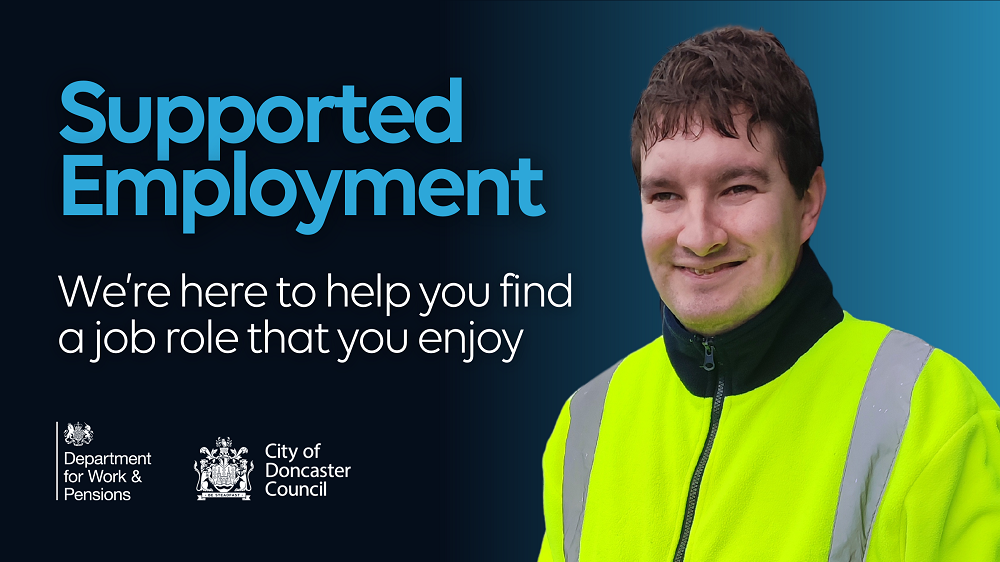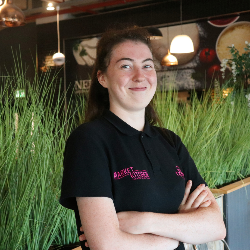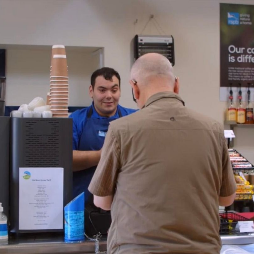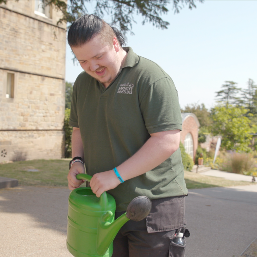Local Supported Employment scheme for Adults with Autism or Learning Disability
Our friendly team helps people with Learning Disabilities or Autism to learn new skills and flourish in the workplace.

The Department of Work and Pensions is teaming up with Community Autism and Learning Disability Team (CALDT) to support people in Doncaster to find a job and stay in work.
Delivering DWP local supported employment has helped 64 people with a learning disability or Autism into employment throughout 2023 to 2025 in Sheffield, Doncaster and Barnsley. We are working with over 30 employers to do this across the region.
We can help you to find and keep a job that you enjoy.
Our support includes:
- help to find out what kind of job would be good for you
- training so you can build basic skills that employers value
- travel training
- job searching tips
- support to write your CV and prepare for interviews
- job coaching and support at work so you can learn your role
- chances to meet local employers that offer work experience, taster shifts or working interviews
or to find out more, please email CALDTDuty@doncaster.gov.uk or call 01302 736705.
If you're a professional looking to make a referral, please fill out our referral form below:
- DONCASTER Referral for Local Supported Employment
- Download (50KB - DOCX)
Meet our co-ordinators
- When you get in touch, a co-ordinator will tell you more about the support we provide.
- It’s good to talk about what work you would like to do and what you might be good at.
- They will talk to you about what you like to do and what you don’t like.
- They will help you to see what skills you already have. You can also talk about any skills you would like to improve.
- You can come up with a plan together.
Speaking to Employers
- Our co-ordinators speak to local businesses so they can create roles for people that might need some extra support.
- If there’s a job that we think you will like, our co-ordinators might ask if they can introduce you.
- Sometimes they can set up a working interview. This means you can try out the job as a trial.
- Another way they can help is by creating a work placement so you can get some experience.
Finding the right match
- It’s good for us to show your CV to businesses if we think you might be a good match. This means we can see if the role would be a good fit for you.
- We can work together to help you search for jobs too.
- We work with employers to see if they can offer a job that would match your skills.
Getting settled in
- We want to help you learn your job and feel confident.
- Work placements are helpful because we can show you what to do.
- Sometimes our job coaches can come to work with you until you are confident to do it on your own.
- We can help you to learn how to travel to work if you need it.
Eligibility Criteria
- Participants must be 18 years of age.
- You must have a learning disability, autism, or both.
- Participants must not be in paid employment or paid self-employment.
- You must not be in full-time education. Those in part-time education will be considered on a case-by-case basis.
- Participants must not be on another Department for Work and Pensions (DWP) funded employment programme.
- You must not be on another employment provision delivered by another government department, charitable trust or third party.
Hear from people we have helped...

"For people with learning difficulties, meeting employers can be hard. A working interview let me show that I can do my job."
Jess at Market Kitchen

"My job coach helped me to build my confidence. She made me feel better about meeting people. It really helps a lot."
Lee at RSPB Dearne Valley – Old Moor

"The best bit about doing my job is it has built up my confidence and it’s helped me communicate better with other people.”
Dylan at Cooper Gallery
To find out more about what CALDT can do to support you in your community, please see our web page, pop in to see us at the Civic Office every Wednesday between 9.30 - 12.30 or visit our Facebook page.

Downloads & Resources
Display your introduction over featured image?: No
